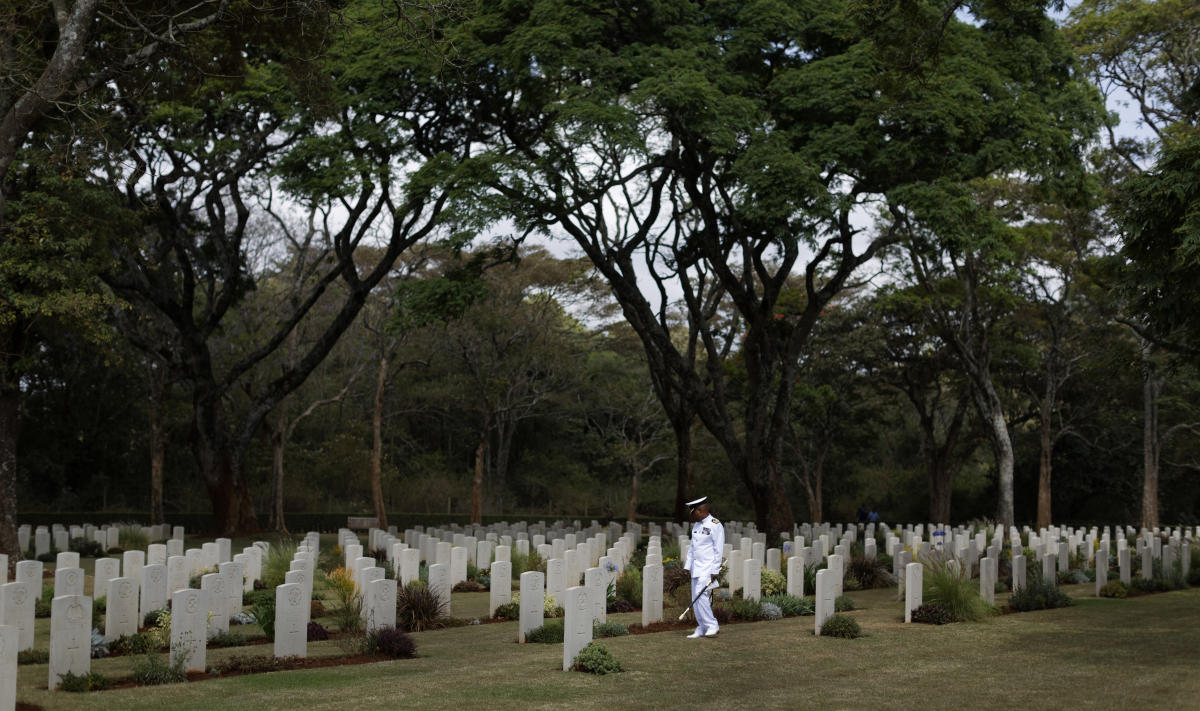LONDON: Hundreds of thousands of predominantly Asian and black soldiers who died fighting for the British Empire have not been formally commemorated in the same way as their white comrades because of decisions underpinned by “pervasive racism,” according to an investigation.
The Commonwealth War Graves Commission (CWGC) discovered that at least 116,000 — but potentially as many as 350,000 — Middle Eastern and African casualties may not be commemorated by name or at all.
The CWGC is expected to issue a formal apology for the unequal treatment of those unnamed soldiers, as well as up to 54,000 African and Asian soldiers who were commemorated “unequally” compared to their white comrades.
The Imperial War Graves Commission, later renamed the CWGC, was founded in 1917 to commemorate men and women of the British Empire who lost their lives in World War I, and was defined by the principle of equality of treatment in death.
Everyone who dies in military service is supposed to be commemorated identically, with their names engraved on a headstone or memorial.
The commission’s findings, seen by The Guardian, quote racist statements — such as a 1920s governor saying “the average native … would not understand or appreciate a headstone” — as evidence that soldiers were treated differently if they came from Commonwealth countries.
“The report highlights that, in certain circumstances, those principles so rigidly adhered to for all who fell in Europe were applied inconsistently or abandoned in the more distant corners of the globe when applied to the non-European war dead of the British Empire, in the immediate aftermath of World War One,” the commission said.
“The commissioners acknowledge that this was not right then and must not be allowed to remain unaddressed now. Those identified in the special committee’s report deserve to be remembered as much today as they did 100 years ago.”
The special committee noted that many of the decisions surrounding burial and commemoration were influenced by a lack of information, opinions of colonial administrators, or other errors.
“Underpinning all these decisions, however, were the entrenched prejudices, preconceptions and pervasive racism of contemporary imperial attitudes,” it said.
Claire Horton, director general of the CWGC, said: “The events of a century ago were wrong then and are wrong now. We recognize the wrongs of the past and are deeply sorry and will be acting immediately to correct them.”
Troops recruited from Britain’s vast empire played important roles in various battles throughout World War I.
Units such as the Egyptian Expeditionary Force suffered thousands of casualties in the British campaign against the Ottoman Empire in the Middle East, and ultimately contributed to the allied powers’ victory.

Trouble in the family: UK’s migrant embarrassment undermines Commonwealth reunionLeaders approve Prince Charles to succeed Queen as Commonwealth head

